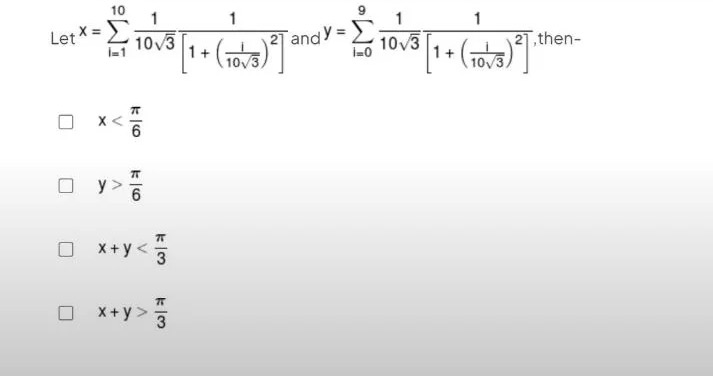Question
Question: Let $x = \sum_{i=1}^{10} \frac{1}{10\sqrt{3}}[\frac{1}{1+(\frac{i}{10\sqrt{3}})^2}]$ and $y = \sum_{...
Let x=∑i=1101031[1+(103i)21] and y=∑i=091031[1+(103i)21], then-

A
x<6π
B
y>6π
C
x+y<3π
D
x+y>3π
Answer
x < \frac{\pi}{6}, y > \frac{\pi}{6}, x+y > \frac{\pi}{3}
Explanation
Solution
Solution Explanation:
Write
Δx=1031and notice that
x=i=1∑10Δx1+(103i)21,y=i=0∑9Δx1+(103i)21.These are the right‐ and left–Riemann sums, respectively, for
I=∫0311+x21dx.Since
∫0311+x2dx=arctan(31)=6π,and because the function f(x)=1+x21 is decreasing on [0,31], the right sum underestimates and the left sum overestimates the integral. Hence:
- x<6π
- y>6π.
Also, the trapezoidal rule is given by 2x+y. For a concave function (here, f is concave on [0,31]), the trapezoidal rule gives an overestimate. Therefore:
2x+y>6π⟹x+y>3π.